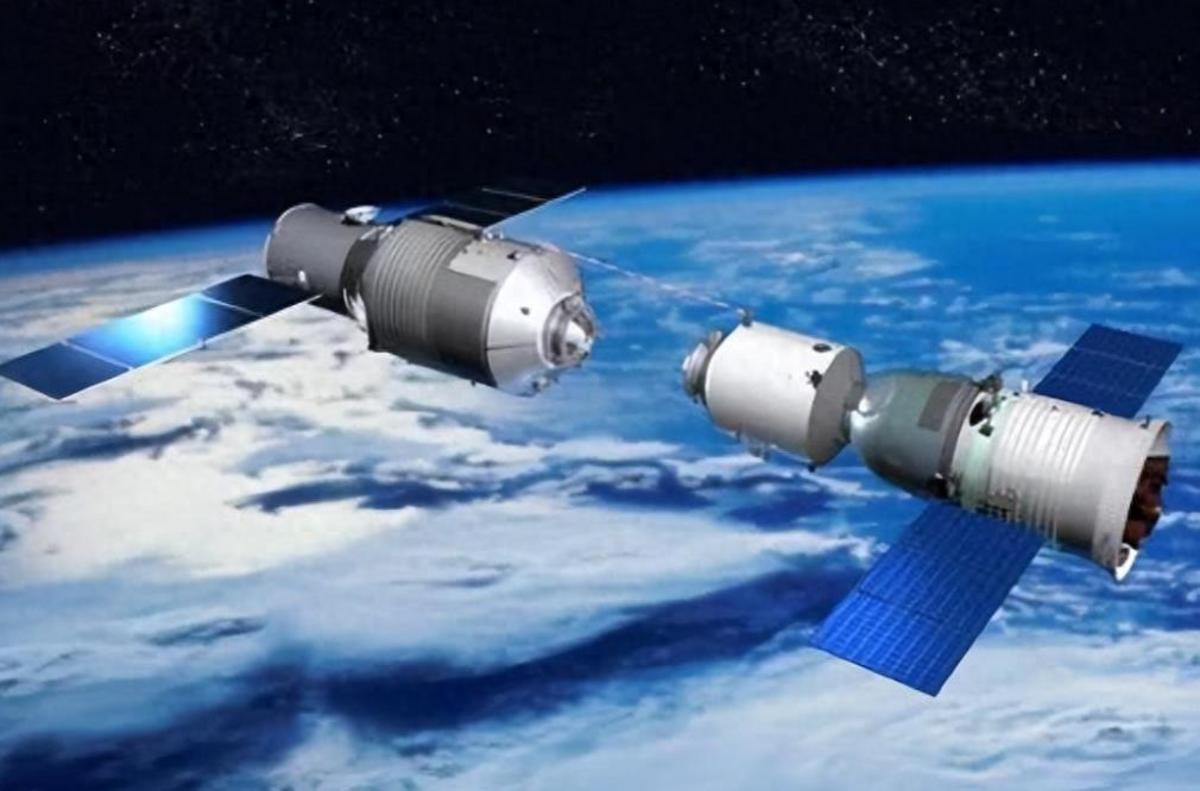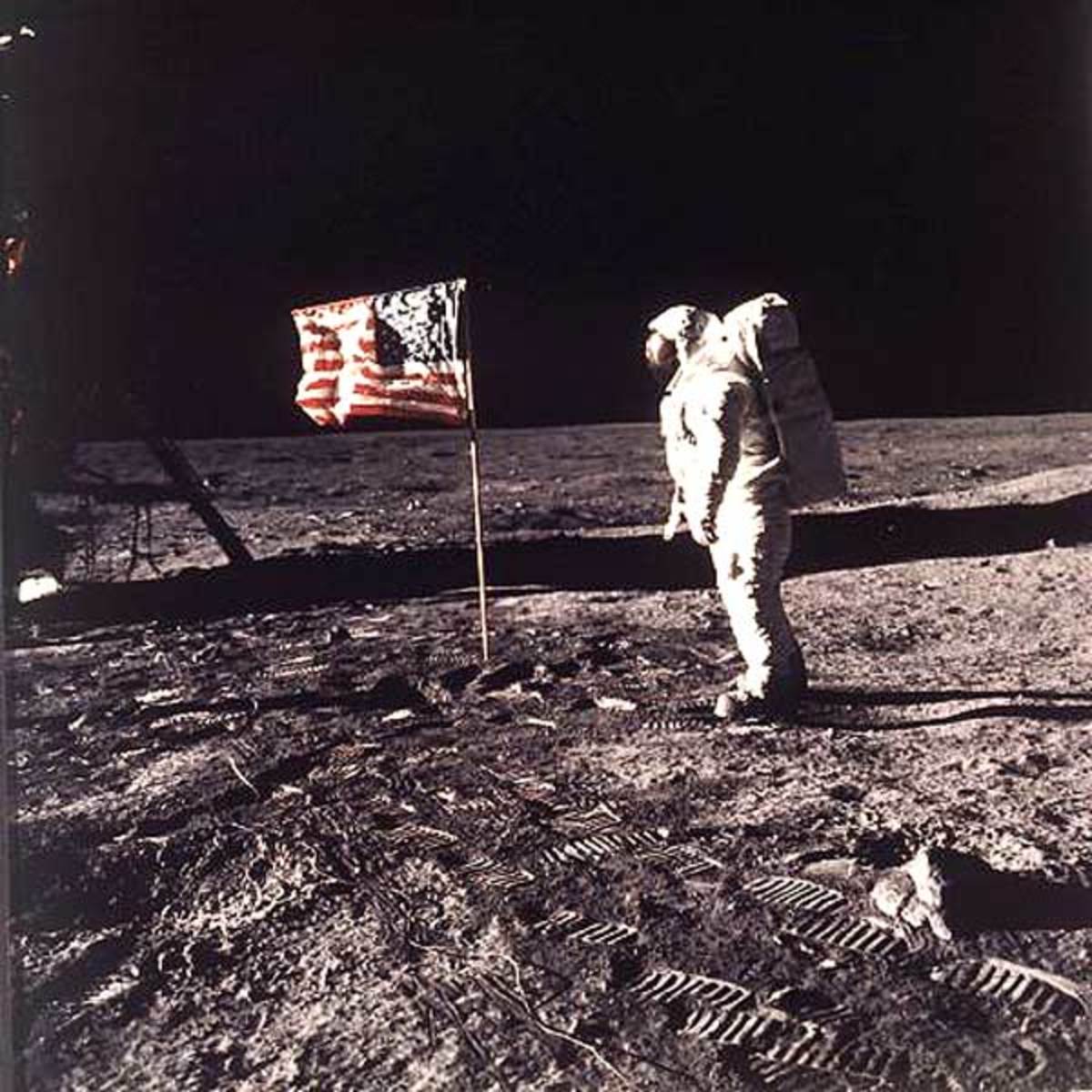Does Man Belong in Space?

Pigs Fly
I knew a good guy, he rode a Harley. At the time, Harley's had the strange advantage of not depreciating after leaving the lot, (I don't know if this is still so). He wore the black leather getup and rode his hog to work everyday. He didn't have a lot of money, but he and his wife owned a nice mobile home in Santa Cruz. His plan was to buy a Harley, ride it till he could afford a newer, bigger one, and do the same trick with the next. Pretty solid plan, at least at the time. He was practically minded and honest.
One day, we were talking about aviation, I don't know how we got on the subject, but I probably started it with some comment about rather spending money to fly than on buying a Harley. He expressed a different view. He said, "If man was meant to fly, God would have given him wings." This coming from a man riding a two wheeled, spark plug, piston and computer driven vehicle that far, far exceeded the 22 mile per hour top speed of man. I could only scratch my head. But it makes one think. Is man meant to fly?

The Price We Pay
There is no doubt that modern technology has made life not only more convenient, but also healthier and safer. What price do we pay for the proliferation of technology in our time? Pollution for one. Is it destroying our atmosphere? That is actually hard to say, since there is a lot of hysteria being promoted by agenda driven people to put it nicely. But some scientists think so. On the other side, people scoff at the idea that humans can have a major impact on the Earth. If we open our eyes and look at the evidence with an objective view, we can safely say we are having some impact on our environment. All you need to do is look at the layer of smog blanketing major metropolitan cities during the summer and you can reach the same conclusion. If we look at this one aspect of technology, we can say that the fault lies with the automobile.
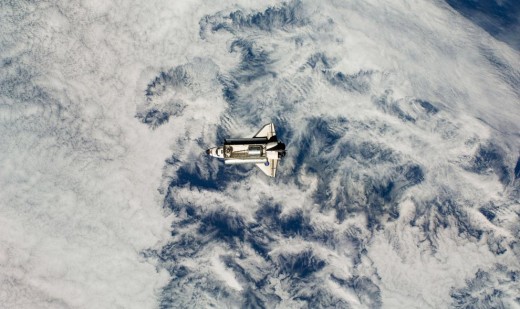
What’s to Blame?
Hold your horses! Is it the car that should take the blame, or is it the way we use it? And that is the crux of the matter. If some junkie shoots up with whatever concoction goes into the needle, do we blame modern medical science? Of course not, that's absurd. How can we apply a different philosophy to modern transportation then? The car is not inherently evil, it is the way we use it that dictates the morality of car ownership. Focusing only on the smog effect for the moment, obviously, there are too many cars on the road. But this is caused by our way of life and our infrastructure. There are various solutions to this, the French compressed-air car, electric cars, better public transportation and so on. Riding a bicycle to work is a good solution for some situations, but not for people who work late at night or commute twenty miles each way.
Obama instituted a "Cash for Clunkers" program that will give a 4500 dollar credit to anyone trading in an old gas guzzler for a new and more efficient car. This is a good step forward, since using less fuel will result in less fumes, hence less pollution. Perhaps he will push a requirement for better public transportation as well. That would be nice. The point is that there are solutions, but not all are easy or quick to implement. However, understanding this, is advanced technology a bad thing? Probably not when used in moderation.
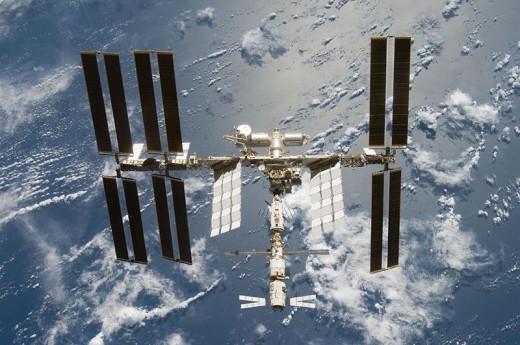
Is it Worth it?
What about space flight? The government funded space program sucks in money like a rabid black hole. We spend 1.5 billion to launch an 86 ton shuttle on millions of pounds of thrust from a million pounds of fuel. From the program, they bring back technological advancements like, (hold your breath), velcro. There have been other advancements such as better x-ray techniques for breast cancer detection and fire resistant material used by firemen. But it is a lot of money, why couldn't that have been spent on doing research for these needed advancements directly? Why is an astronaut's life worth more than a fireman's? It isn't. By maintaining a presence in space, we stay at the cutting edge of science and ensure military superiority over the rest of the world. You might ask, don't China, Russia and India support their own space programs? Yes, but none do it as well as the Americans, nor are as well funded. Not only that, but by maintaining a presence in space, we retain the capability to launch satellites needed not only for spying on other nations, but making sure that we continue to stay ahead of other nations technologically and thereby encourage a strong economy. Think satellite TV, (not the greatest achievement culturally speaking of course), GPS and telecommunications. Without satellites launched into space by our expensive space programs, we would not have multi-million dollar industries that employ tens of thousands or even millions of people which in turn stimulate our economy.
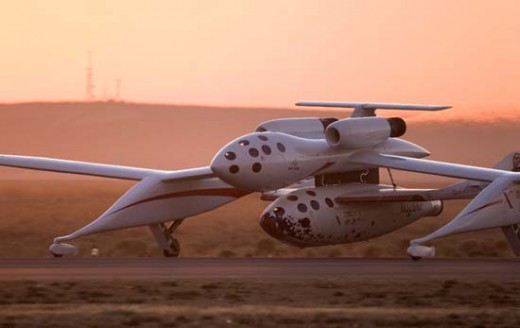
Economic Revival and Necessary Waste
Being first and a world power is extremely expensive, but necessary. Commercial, non-government funded space flight is becoming a reality thanks to the funders of the X-prize which inspired inventors to compete to send the first human being into sub-orbital space without any government assistance. Space entrepreneurs were inspired to enter the space business as a result, although it is important to mention that the tendrils of imaginative innovation leading to commercial space flight were already budding before the X-prize. It will be a good thing if the private sector becomes involved. Only when a free market exists can society thrive. America does it well in many areas, especially technological innovation. But space has always been the impossible realm of NASA. The government funded space program has yielded many benefits and will continue to do so, but with the door opening to cheaper and more innovative space travel, we will see an economic revival and reap even more scientific benefits.
One could successfully argue that space travel is wasteful. It is, but waste in this sense is merely a by-product of reaching higher and making life better. What if Edison had stuck to selling newspapers, candy and vegetables? What if he didn't let his mind wander in school? Instead, he kept dreaming and ended up inventing the light bulb and electric power distribution to name a scant few. On his road to many successes, he was fired for conducting experiments after a battery he was working on leaked acid onto his boss's desk. If he hadn't been a dreamer and wasted so much material and time, simple inventions we enjoy today might not be in existence at all. This is a philosophical example to prove that waste in the pursuit of advancement can not be quantified or disdained.
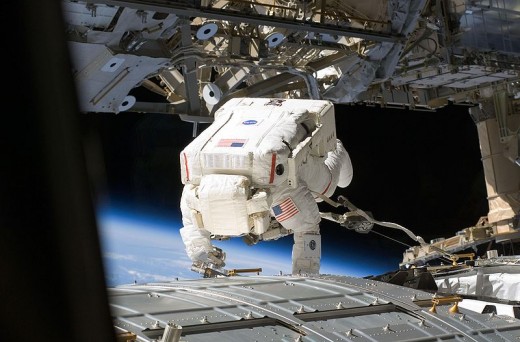
Alternatives?
Would we be better off feeding the poor instead of floating in orbit? Maybe. But without spending money on technology, science and finding our limits, where would we be? Would the USSR still be around, would we be Communists standing in bread lines? Or would we be able to defend ourselves against the next terrorist threat, or Iran, or China? Where would Israel be today without the support of the United States and her military superiority brought about by economical and technological innovation?
At first glance, space flight is wondrous. At second glance, one might shake their head at the massive amounts of money, time and material spent and call it a waste. With a final and scrutinizing look, we can see that not only is it beneficial, but necessary.
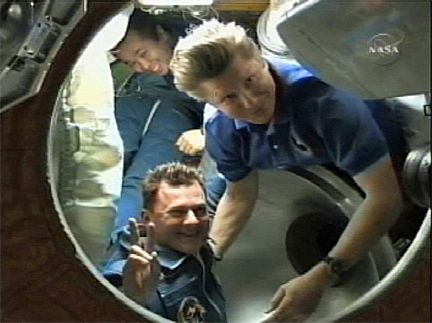
We Should Go!
Finally, does man belong in space? Space is not a natural habitat for mankind. But neither is the ocean, yet men have made it their home for thousands of years on ships of trade and war. Because men decided to brave the "end of the world", America was found and developed in to the nation it is today. Brave men still travel to the end of the world, and in part thanks to them, America stays at the leading edge and remains a world superpower. God did not give man wings in the physical sense, but he gave us the mind to make them. It is up to us to use our wings wisely to benefit others, help the hurting and avoid the temptation to use that knowledge for laziness and self gratification.

- Thomas Edison
Wikipedia - Obama's $4500 Guzzler Rebate
The official website for the CARS Car Allowance Rebate System.





